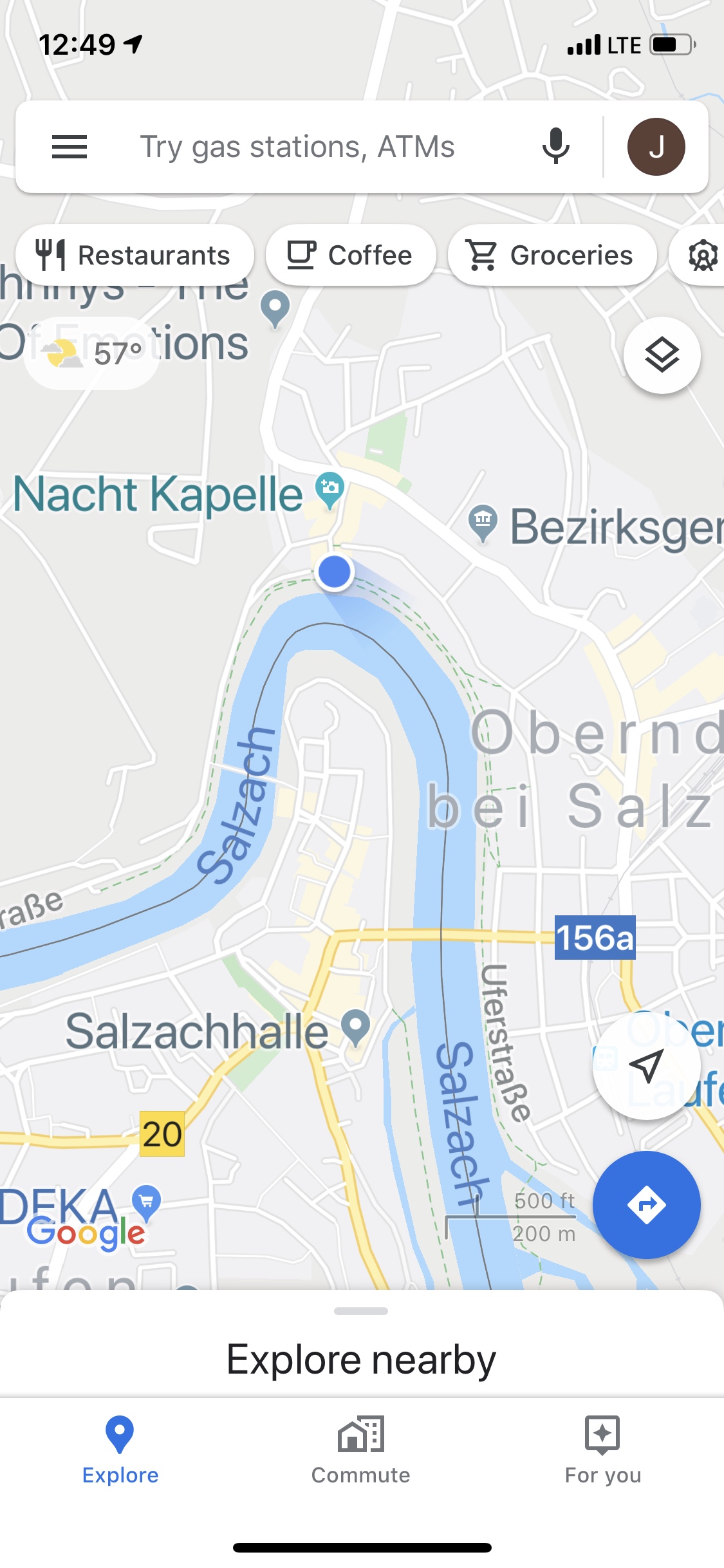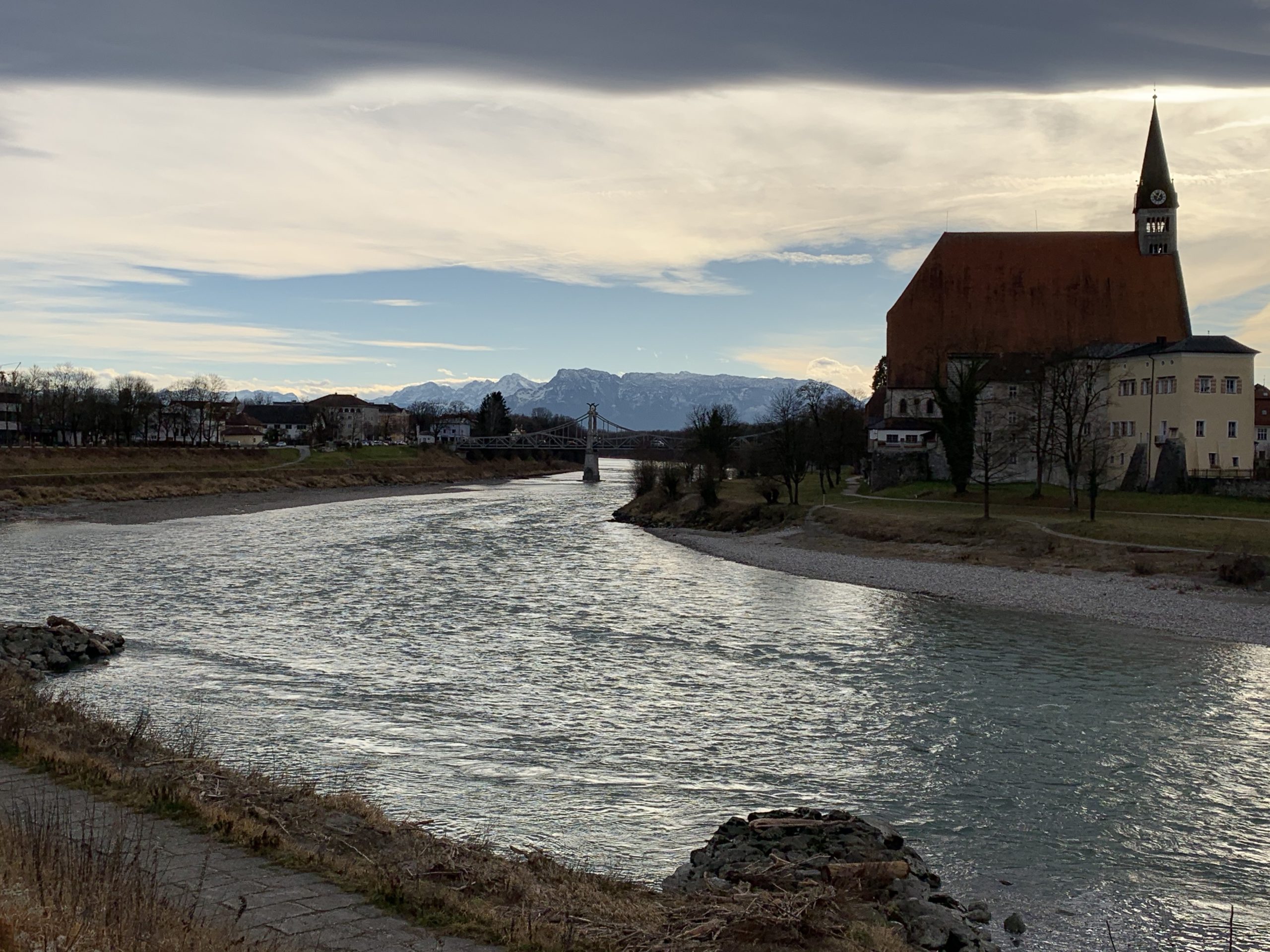When we went to Austria and Germany in 2019, we took a side trip from Salzburg to Oberndorf bei Salzburg. It’s a town located 17 km north of Salzburg that’s most known as the hometown of the Christmas carol Silent Night. While the town was quaint, we found out the most interesting thing about it while walking along the river bank to the train station.
In 1816, as a result of the Napoleonic Wars, the town was split from its sister town of Laufen across the river, which became part of the Kingdom of Bavaria.
As you can see from this map, the cities meet at this bend of the Salzach river.

At the time, we could have walked up to the bridge and gone over from Austria into Germany.

That’s not true now. Because of COVID-19, we couldn’t even enter Germany.
Who is affected?
German citizens are allowed to return to Germany at all times.
Non-German citizens, including EU and foreign nationals alike, are allowed to enter the country under certain conditions. According to the Interior Ministry, those conditions include:
- “persons returning to their home or legal residence in Germany.”
- “work purposes or to carry out professional contractual services,” such as commuters or diplomats.
- “urgent reasons requiring entry,” such as medical treatment.
- “transit through Germany to return to one’s home country if no other travel connection is possible.”
Authorities will allow for cross-border commuting and transport of goods “with as little disruption as possible.”
Is Germany open for tourism?
Entry into Germany for purposes of tourism is strictly prohibited. Non-German citizens attempting to enter the country for “any non-essential travels may be refused entry,” according to the Interior Ministry.
Even we could have entered Germany, we couldn’t have crossed back into Austria.
Moreover, all individuals regardless of their citizenship are required to preset a medical certificate confirming a negative molecular-biological SARS-CoV-2 test when entering Austria by land (for requirements see above). Persons who cannot produce the required medical certificate will be denied entry into Austria. Exceptions apply for Austrian citizens and permanent residents of Austria, as well as individuals transiting Austria without stop. Changes may apply at any time. Health authorities may impose health examinations on any person entering or travelling through Austria.
Imagine what it’s like to live there. While the cities have been in different countries for almost 200 years, since both Austria and Germany are in the Schengen zone, travel between countries has been seamless for quite a while.
Because of COVID-19, the countries have locked down their borders, as is allowed under the agreement if there are special circumstances. The bridge we saw as a link between the two countries is now a checkpoint to keep people out and prevent the spread of disease.
When we visited there in December 2019, things were so different. It’s hard to believe that was only four months ago.
#stayhealthy #stayathome #washyourhands
Like this post? Please share it! We have plenty more just like it and would love it if you decided to hang around and get emailed notifications of when we post. Or maybe you’d like to join our Facebook group – we have 12,000+ members and we talk and ask questions about travel (including Disney parks), creative ways to earn frequent flyer miles and hotel points, how to save money on or for your trips, get access to travel articles you may not see otherwise, etc. Whether you’ve read our posts before or this is the first time you’re stopping by, we’re really glad you’re here and hope you come back to visit again!
This post first appeared on Your Mileage May Vary
